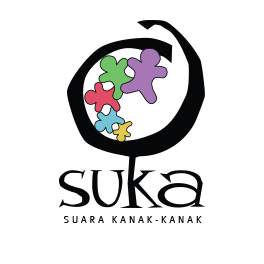Excerpt from the latest issue of Esquire Magazine, May 2013 –
 Tharini Cecil works with SUKA Society, which is a non-governmental organisation that, among other things, helps children who are trafficked. It has been granted unparalleled access by the Government to assist women and children in its shelter homes for the past three years, but combating trafficking comes at a cost. We meet at an obscure shop lot in Petaling Jaya, which is apparently where SUKA’s offices are located. There are no signs or indicators that advertise SUKA’s presence here, and it is only after one goes into the shop lot that one is cognisant of where one is. SUKA also does not advertise a landline number or address and all mail is routed to a post-office box.
Tharini Cecil works with SUKA Society, which is a non-governmental organisation that, among other things, helps children who are trafficked. It has been granted unparalleled access by the Government to assist women and children in its shelter homes for the past three years, but combating trafficking comes at a cost. We meet at an obscure shop lot in Petaling Jaya, which is apparently where SUKA’s offices are located. There are no signs or indicators that advertise SUKA’s presence here, and it is only after one goes into the shop lot that one is cognisant of where one is. SUKA also does not advertise a landline number or address and all mail is routed to a post-office box.
“The trafficking of children to, through, and within Malaysia is mostly done for the purposes of sexual exploitation,” Tharini explains. “What most don’t realise is that trafficking is actually facilitated by childhood friends, relatives, and even neighbours, for the purposes of profit. Where children are not trafficked for sexual purposes, they are taken to have their organs harvested.
“I find it odd that when a child is reported as missing, a public service announcement is quickly made to search for a child within the area where he or she has gone missing,” she continues. “This is rarely the case. What is more common is that when a child has been taken, like from a pasar malam, for example, the syndicate agents will swap the child from agent to agent, quickly and repeatedly, to obscure their tracks. Within an hour, the child can be in another state, or even at the border.”
Besides being traumatised this way, the children also experience the death of their innocence and childhood. “For the child, the whole chain of events is a succession of traumatising events,” Tharini says. “Besides syndicate agents at the beginning, the children have to deal with the rescuers, police, officers of the court, officers at the protection home, and at the end of it all, the word “trust” is no longer in their vocabulary.”

